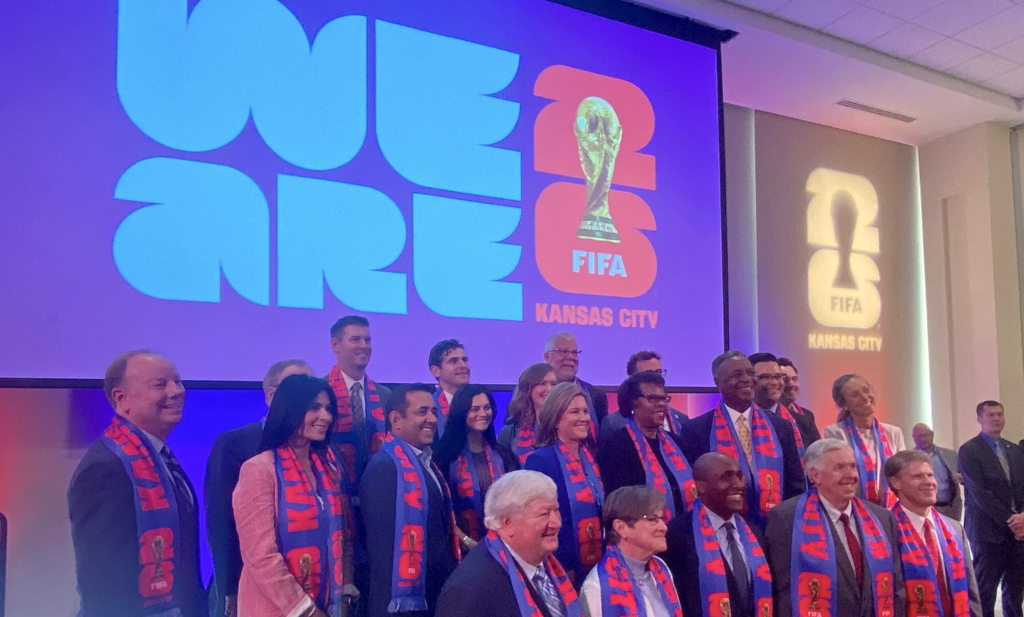Walk 500 More

Of all the adjectives with which a pop musician can be weighed down, maybe the least probable — certainly one of the least desired — is “endearing.” Mick Jagger, for instance, will be senile before he’s endearing, and that’s just the way he wants it. Even wizened, strangely effeminate-looking Paul McCartney fails to cause that immediate and inexplicable warmth: the kind of feeling that accompanies the sight of an old friend in an airport or a boxful of ugly puppies, the kind of fuzzy butterflies you get if you happen across The Proclaimers‘ 1993 hit, “I’m Gonna Be (500 Miles).” That song not only brought the Scottish duo American chart success but also, like the Stones’ “Satisfaction,” still serves as a neat summary of the group’s mission statement. If you like it, you’ll like all their songs; it’s just that simple. The video, featuring pop-up Proclaimers singing the song’s insistent da-da-da-da hook in earnest close-up, is the modern definition of endearing.
But if twin brothers Charlie and Craig Reid are the rare act capable of sustaining a high quality of songwriting without substantially altering its sound, Proclaimers records still aren’t made overnight. In fact, their new al-bum, Persevere, comes six years after the pair’s last, the interim having been devoted to advancing the Reid bloodline (Craig and Charlie seem to be locked in a successful baby-making campaign, with Craig’s four children edging out Charlie’s three) while getting over the loss of their dad.
“I think that when you get something as dramatic as illness and death of someone that you love,” begins Craig Reid, “it stays in there and comes out much later on.” For eighteen months after their father’s 1997 death, the duo put music aside entirely. “Neither of us could just sit down and write songs about it,” Reid says from Scotland, where he still lives a few minutes from his brother. “Anything we write about, the experience behind it is usually months or years ago.”
The brothers share writing credit for their songs, which Reid says they work out together from their separate chord and lyric ideas, fleshing out the demos that they make alone. For Persevere, which the pair released itself (its label is also called Persevere), Reid says the duo exhausted the fourteen songs it started with in a fourteen-day trip to a Minneapolis studio with noted producer Chris Kimsey. “There’s nothing left,” Reid confesses. “We wanted everything we’d written to be on it.
“I think the fact that we’re 39 and have been writing for years means that we’ve gotten better at expressing ourselves, and we are still autobiographical in our writing,” Reid adds. “All our albums, but this one in particular, you sit down and listen to it and you know what reflects the past year or five years.” So Persevere has its share of sober meditations memorializing the Reids’ father. But it also sails along on the brothers’ usual sunny harmonies, their voices blending in a metaphor for the failure of others to tell them apart that is the bane of a twin’s life.
“We still hit bum notes, but we still mean to get better,” Reid says modestly. “It’s natural for us to sound good together because siblings do, and we’re twins.” Every note that didn’t go sour, though, is captured in first-take form, because the Reids prefer to record their vocals — and the music backing them — live in the studio. “We occasionally do drop-ins,” he explains, referring to the practice of overdubbing a botched line. “But I think certainly that vocals have become easier every album we’ve done. You learn to sing not quite so loud.”
Due in part to the Reids’ disdain for expensive studio wizardry, Persevere cost approximately 150,000 British pounds to make, a bargain for an established band with a worldwide following. Reid says the brothers could afford to foot the bill themselves for the first time and wanted to record Persevere before finding a new deal to avoid being indebted to a record label. “We could have had a deal in the U.K., but we decided to do it ourselves,” he says. “We had three or four offers, but we waited them out, thinking that we could sell more records and have a better time on our own, be more in control. It’s a headache in some ways, but you get to pick and choose the people you want to work with. You pick the distributors for different territories one by one.”
The Proclaimers have also entered the Web fray, maintaining a site themselves with regular messages to fans and, starting last week, merchandise for sale. “When you have had past success and you have an audience out there, you look for ways to reach those people,” Reid says. The group has already experienced computer-related success, having reaped the benefits of IBM’s decision to use the 1987 album track “Over and Done With” for a worldwide advertising campaign. “I really don’t know how they found us or that song,” Reid says. “We’ve had thirteen or fourteen songs in movies over the years, and ‘I’m Gonna Be’ has been on commercials. I think it’s that people in advertising aren’t very original. They jump on things that are already successful or familiar. But they have good taste.” Reid punctuates this punch line with a laugh, which, like his speaking voice, is cloaked in a thick brogue. Yet, with a little effort, Reid’s words aren’t hard to understand. (This in contrast to the band’s first U.S. television appearance, on David Letterman’s old NBC show in the ’80s; when the Reids began talking, Letterman’s face immediately registered the mistake he’d made asking them a question after their performance.)
The Proclaimers were asked to re-record “Over and Done With” for the ad, but someone else — Reid doesn’t know who — reimagined the song as one simply whistled. Either way, the Reids get paid. “I have to say, it’s really helped us,” he admits. “They extended the run of the commercials, so that deal with IBM paid for a lot of what it cost to make Persevere. So we really had no second thoughts about being used in an ad.” As Reid points out, it beats being in debt.
“I don’t think we expect lots of chart success,” he continues. “And I don’t want to be involved with the stuff that’s popular right now, boy bands who are designed for young girls. I listen to the same stuff I always have, R&B and rock, the stuff I grew up with, and it still interests me to play and sing. I want to write more songs and sing better.” An endearing philosophy from an endearing — and enduring — group.




